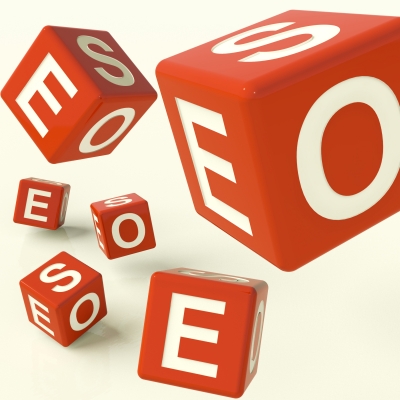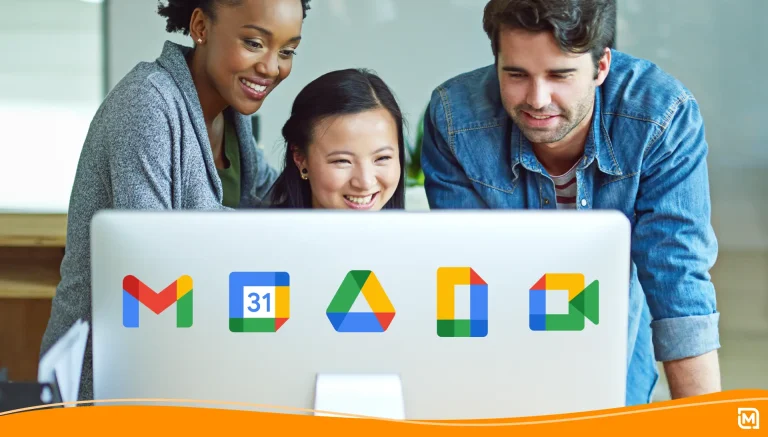 When you start a business, there is so much to do and get right. Recently we’ve written about when you need to start thinking about design. And when you need to think about branding. Today, let’s take a quick look at when you need to start worrying about search engine optimization (SEO).
When you start a business, there is so much to do and get right. Recently we’ve written about when you need to start thinking about design. And when you need to think about branding. Today, let’s take a quick look at when you need to start worrying about search engine optimization (SEO).
Search engine optimization is one of those things that most small business owners simply don’t think about. But they should.
SEO is the means by which customers will find you online. And there are a lot of moving parts that need your attention.
It starts with your website.
Creating a fantastic website that your customers love is the first step. If your customers have a great experience every time they visit, you’ll do okay. But it’s not the only thing you need to think about.
Ranking near the top of the search engine results is not easy. In fact, for many phrases, it will be impossible. As a small business owner, you simply won’t have the money or time to put into the effort required for this. But that doesn’t mean you shouldn’t optimize your site.
Even if all you have is a single web page to advertise your business services online, you should work with an online copywriter to make sure your site includes the key words your customers use to find your business. Your copywriter can also help you write title and description tags that your web programmer will use to “optimize” your site for the search engines. They will help you determine the best words to use in your headlines (and H tags). And, if you work with a good writer, they’ll also help you craft conversion-oriented copy and calls-to-action that will encourage your customers to buy your products.
Work with your programmer to make sure that your images are optimized and your site loads as quickly as is possible. Make sure to include contact information and if you sell your product online, make sure you use a secure connection to do it. All of these things affect how Google, Bing and the other search engines find and rank your site.
Next, you’ll want to post a sitemap that will help the search engine bots crawl your site and read what’s there. And you’ll want to pay attention to the structure of your site, if you have more than a page or two. Using key words in your URLs can help the search bots understand what your site is all about. Again, a good programmer will help you with these things.
If you didn’t understand all of that stuff about tags, key words, and bots, don’t worry. A good copywriter (and programmer) will. Ask them. And if they can’t tell you more than what we’ve written here, find one who can. (We’ve barely touched on the basics, there’s a lot more to this stuff and they’ll be the best people to help you.)
If you want to learn more about SEO on your own, there are a couple of excellent guides that can teach you the basics like the article here and this secondary article here.
Next, you’ll need a few links.
The first few links to your site are easy. You can set up a Facebook page for your business, a Twitter page, and a Google business page. This last one is a must, as Google uses these listings for their local search results. All of these pages allow you to add a link back to your site, which will help the search engines find you. There are companies that specialize in link building and can help you do this. But beware: make sure who ever you hire uses “white hat” link building techniques and watch your budget. Most companies charge around $250 per link—not something most small businesses can afford.
The best way to get links to your site is to put stuff on your website that people want to link to. If you own a restaurant, you might post a few popular recipes. If you’re a plumber, you might post a guide to unclogging pipes or replacing the flush mechanism in a toilet. If you are starting a business that helps people find a job, you could post a guide to writing resumes or the top interview questions your customers might be expected to answer. Then share this information on your Facebook page, your Twitter page, and Google Plus.
At the very least, you need to do these things to give your site a chance of showing up on line when your customers search for you.
There are a lot of other things you can do to attract links to your site, but they take a lot of time and effort. Weekly blog posts (with awesome content customers can’t find anywhere else). Videos, eBooks, Beginner’s Guides and more. But creating this content can be time consuming (if you do it) and expensive (if you hire someone else).
With all the other stuff you have to worry about as your build and grow your new business, SEO probably won’t top the list. If your company is mostly offline, this may not be a problem. But if you are starting an online business, you’ll need to make time or budget for SEO to be a priority. It matters and it may determine whether your startup succeeds.
So, when do you start to worry about SEO? Now. Before you starting writing and programming your website. And if you already have a website, talk to someone who can help you optimize it going forward.
Photo credit: SEO Planter.



